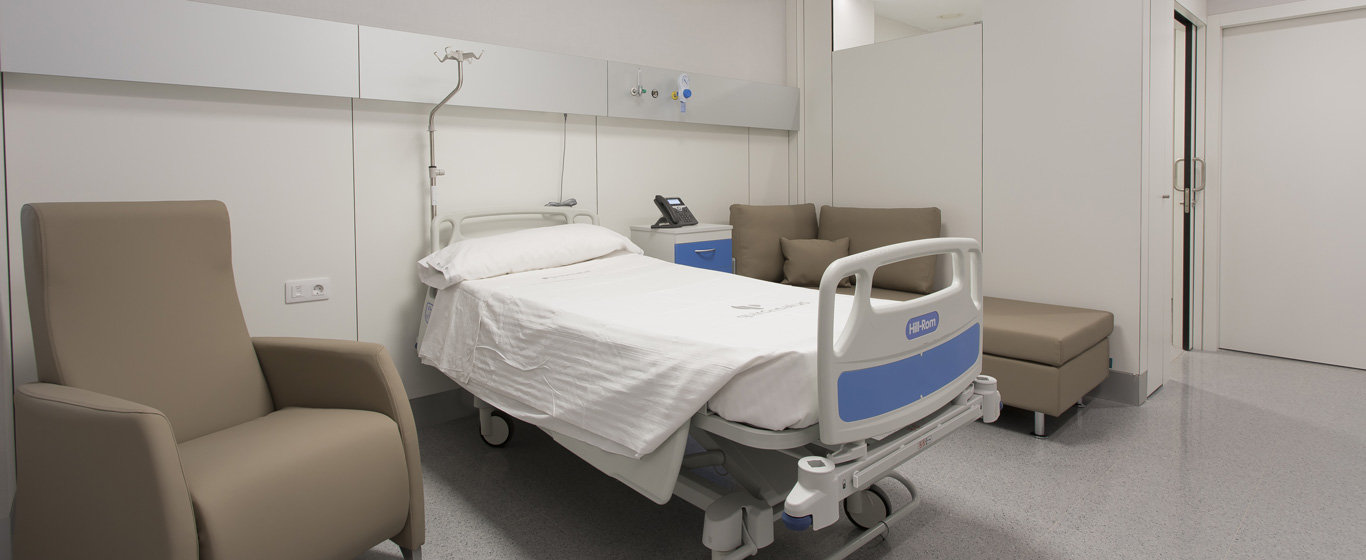Gastritis
What are the different types of gastritis? Information on the causes, symptoms, and treatments for this disease.
Symptoms and Causes
Gastritis is one of the most common stomach diseases and occurs when the tissue or mucosa lining the stomach becomes inflamed.
Depending on how it manifests and its duration, there are two types of gastritis:
- Acute gastritis: It appears suddenly and usually lasts for a short period of time. It can be caused by various agents such as viruses, bacteria, medications, or foods.
- Chronic gastritis: It appears progressively and lasts for a long time. It can be asymptomatic. Normally, it indicates the presence of another disease.
In most cases, gastritis improves with the appropriate treatment and rarely causes serious complications.
Symptoms
The most common symptoms of gastritis are:
- Pain in the upper abdomen.
- Indigestion (dyspepsia) or feeling of fullness.
- Burning sensation or heartburn.
- Stomach acid.
- Nausea and vomiting.
- Dark stools, indicating the presence of blood.
Causes
There are many causes of gastritis, which is why there are different types:
- Helicobacter pylori gastritis: This is one of the most common types. It occurs when H. pylori, one of the bacteria that inhabit the human stomach, negatively affects the body and causes an infection.
- Infectious gastritis not related to H. pylori: Inflammation caused by certain viruses, bacteria, or parasites.
- Nervous gastritis: Caused by mental disorders such as anxiety or stress.
- Autoimmune gastritis: This is not very common. The immune system creates antibodies that attack the parietal cells responsible for producing gastric acid.
- Eosinophilic gastritis: This is rare. The mucosa becomes inflamed due to the presence of white blood cells (eosinophils) in the stomach.
- Gastritis associated with Crohn's disease.
Risk Factors
Some of the factors that increase the risk of developing gastritis are:
- Having a bacterial infection.
- Taking certain medications frequently (aspirin, non-steroidal anti-inflammatory drugs: NSAIDs) without protecting the stomach.
- Immune system disorders.
- Family history.
- Alcoholism.
Complications
Gastritis rarely presents complications. However, it may contribute to the development of other diseases, such as:
- Anemia: Related to blood loss, poor absorption of food and/or iron, or loss of appetite.
- Peptic ulcers: Inflammation favors the erosion of the stomach mucosa.
- Atrophic gastritis: When caused by Helicobacter pylori or an immune disorder and it becomes chronic, it leads to the loss of the glands responsible for producing gastric juice.
- Stomach cancer: Cancerous tumor cells appear.
Prevention
Gastritis cannot always be prevented, but some healthy habits help reduce its occurrence:
- Eat in small amounts and chew food properly.
- Avoid alcohol and caffeine.
- Reduce stress.
- Minimize medication intake, especially anti-inflammatory drugs (aspirin, NSAIDs).
- Avoid consuming processed, very fatty, or spicy foods.
Which doctor treats gastritis?
Gastritis is diagnosed and treated in a digestive system specialist's office. Family doctors are also qualified to manage it.
Diagnosis
To confirm the diagnosis of gastritis, after the anamnesis, doctors usually carry out the following tests:
- Upper digestive endoscopy (Gastroscopy): A flexible tube with a camera at the end is inserted through the mouth to observe the state of the gastric mucosa.
- Tests to detect Helicobacter pylori: There are different diagnostic methods. Non-invasive ones: urea breath test, stool antigen test, and serological tests. Invasive methods commonly use gastroscopy and include the urease rapid test, culture, and histology.
- Abdominal X-ray: This allows the analysis of the stomach's characteristics and size.
Treatment
The treatment for gastritis usually involves taking medications, particularly antibiotics to eliminate the infection, whether caused by H. pylori or another agent, or medication to reduce stomach acid production (antacids). Dietary measures also help improve gastritis.

































































































